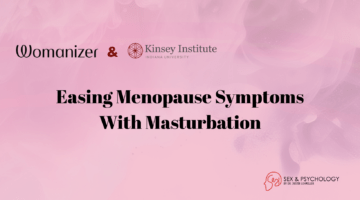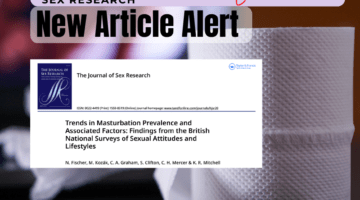Is It Better To Hide Porn Use From Your Partner, Or Own Up To It?
January 15, 2014 by Justin Lehmiller

Imagine that you’re sitting in bed watching some porn on your smartphone or laptop. You look up to see that your partner has just entered the room. What do you do? Do you try your best to hide the porn from your partner and pretend like you were doing something else? Or are you up front about what you were looking at? For many of you, your immediate reaction is probably to try and disguise this and every other instance of porn viewing in the hope that your partner doesn’t find out; however, research suggests that this kind of deception may not necessarily be in the best interest of your relationship.
In a new study published in the Journal of Sex & Marital Therapy, a sample of 340 heterosexual women aged 18-41 completed an online survey. To be eligible for the study, women had to report being in a relationship of at least six months’ duration with a man who uses pornography at least sometimes. The women were surveyed about their own and their partner’s use of pornography, as well as whether they thought their male partners were being honest about their porn use. In addition, participants were asked how satisfied they are with their relationship and whether they were distressed over their male partner’s porn use (e.g., do they perceive their partner’s porn use as a form of cheating?).
Most of the women in the sample (84.4%) believed that their partners were generally honest about their porn use, with 10.6% believing their partners had not been honest. The remaining 5% were undecided. The women who felt that their partners were dishonest reported being the least satisfied with their relationship and felt the most distress over their partner’s porn use. Those who thought their partners were honest were the most satisfied and least distressed, while the undecided folks fell somewhere in between.
The researchers also looked at whether women engaged in mutual porn use with their partners. Most of the women (70%) said that they never used porn with their partners, 5% said they did it rarely, and 25% said they did it with some regularity. Mutual porn use was not associated with relationship satisfaction (i.e., women were about equally satisfied regardless of whether they used porn with their partners); however, mutual porn use was linked to feelings of pornography distress. Specifically, those women who rarely or never used porn with their partners felt more distressed than those who often engaged in mutual porn use.
These results would seem to suggest that when it comes to porn use, honesty may be the best policy. That said, these findings do not rule out the possibility that women who thought their partners were dishonest about porn also thought their partners were dishonest about other things in their relationship. So, it could be that these findings have more to do with women’s broader perceptions of their partners’ honesty, as opposed to honesty specifically about porn use. Also, this study only looked at women’s perceptions of their partners’ honesty about porn, not whether their partners were actually being honest. We know that in relationships, people sometimes see what they want to see, and that may not represent the whole truth. It is also worth noting that this study did not consider whether there may be some cases in which over-disclosing about one’s porn use could potentially hurt a partner’s feelings.
Despite these limitations, these findings are consistent with the idea that open and honest communication about porn and other sexual matters is usually a sign of a healthy relationship.
Want to learn more about The Psychology of Human Sexuality? Click here for previous articles or follow the blog on Facebook (facebook.com/psychologyofsex), Twitter (@JustinLehmiller), or Reddit (reddit.com/r/psychologyofsex) to receive updates.
To read more about this research, see: Resch, M.N. & Alderson, K.G. (in press). Female partners of men who use pornography: Are honesty and mutual use associated with relationship satisfaction? Journal of Sex & Marital Therapy. DOI: 10.1080/0092623X.2012.751077
Image Source: iStockphoto.com
You Might Also Like:

Dr. Justin Lehmiller
Founder & Owner of Sex and PsychologyDr. Justin Lehmiller is a social psychologist and Research Fellow at The Kinsey Institute. He runs the Sex and Psychology blog and podcast and is author of the popular book Tell Me What You Want. Dr. Lehmiller is an award-winning educator, and a prolific researcher who has published more than 50 academic works.
Read full bio >

